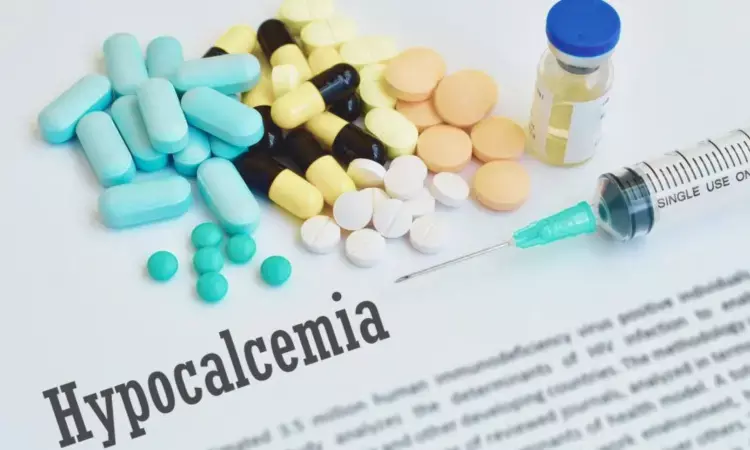- Home
- Medical news & Guidelines
- Anesthesiology
- Cardiology and CTVS
- Critical Care
- Dentistry
- Dermatology
- Diabetes and Endocrinology
- ENT
- Gastroenterology
- Medicine
- Nephrology
- Neurology
- Obstretics-Gynaecology
- Oncology
- Ophthalmology
- Orthopaedics
- Pediatrics-Neonatology
- Psychiatry
- Pulmonology
- Radiology
- Surgery
- Urology
- Laboratory Medicine
- Diet
- Nursing
- Paramedical
- Physiotherapy
- Health news
- Fact Check
- Bone Health Fact Check
- Brain Health Fact Check
- Cancer Related Fact Check
- Child Care Fact Check
- Dental and oral health fact check
- Diabetes and metabolic health fact check
- Diet and Nutrition Fact Check
- Eye and ENT Care Fact Check
- Fitness fact check
- Gut health fact check
- Heart health fact check
- Kidney health fact check
- Medical education fact check
- Men's health fact check
- Respiratory fact check
- Skin and hair care fact check
- Vaccine and Immunization fact check
- Women's health fact check
- AYUSH
- State News
- Andaman and Nicobar Islands
- Andhra Pradesh
- Arunachal Pradesh
- Assam
- Bihar
- Chandigarh
- Chattisgarh
- Dadra and Nagar Haveli
- Daman and Diu
- Delhi
- Goa
- Gujarat
- Haryana
- Himachal Pradesh
- Jammu & Kashmir
- Jharkhand
- Karnataka
- Kerala
- Ladakh
- Lakshadweep
- Madhya Pradesh
- Maharashtra
- Manipur
- Meghalaya
- Mizoram
- Nagaland
- Odisha
- Puducherry
- Punjab
- Rajasthan
- Sikkim
- Tamil Nadu
- Telangana
- Tripura
- Uttar Pradesh
- Uttrakhand
- West Bengal
- Medical Education
- Industry
Denosumab Linked to Higher Risk of Severe Hypocalcemia in Older Female Dialysis-Dependent Patients: JAMA

USA: A target trial emulation study revealed that denosumab significantly increased the risk of hypocalcemia requiring emergency treatment compared to bisphosphonates in women with osteoporosis and chronic kidney disease (CKD). The risk of emergently treated hypocalcemia with denosumab was found to rise with the progression of CKD, especially in patients with CKD-mineral and bone disorders.
"Treatment with denosumab in older female dialysis-dependent patients was linked to a statistically and clinically significant higher risk of severe hypocalcemia compared to oral bisphosphonates," the researchers wrote in the Journal of the American Medical Association (JAMA).
The researchers note that dialysis-dependent patients face high morbidity rates from fractures, yet there is limited evidence on the best treatment strategies. Chronic kidney disease–mineral and bone disorder is almost ubiquitous in these patients, making the diagnosis and management of skeletal fragility more challenging. Considering this, Steven T. Bird, US Food and Drug Administration, Silver Spring, Maryland, and colleagues aimed to assess the incidence and relative risk of severe hypocalcemia in dialysis-dependent patients treated for osteoporosis with denosumab compared to oral bisphosphonates.
For this purpose, the researchers conducted a retrospective cohort study of female dialysis-dependent Medicare patients aged 65 or older who began treatment with denosumab or oral bisphosphonates between 2013 and 2020. Clinical data, including monthly serum calcium levels, were obtained through the Consolidated Renal Operations in a Web-Enabled Network database.
Severe hypocalcemia was defined as serum calcium below 7.5 mg/dL or emergent care for hypocalcemia. Very severe hypocalcemia was also assessed. The study calculated cumulative incidence and risk differences during the first 12 weeks of treatment.
Based on the study, the researchers reported the following findings:
- In the unweighted cohorts, 607 of 1523 denosumab-treated patients and 23 of 1281 oral bisphosphonate-treated patients developed severe hypocalcemia.
- The 12-week weighted cumulative incidence of severe hypocalcemia was 41.1% for denosumab versus 2.0% for oral bisphosphonates (weighted risk difference, 39.1%; weighted risk ratio, 20.7).
- The 12-week weighted cumulative incidence of very severe hypocalcemia was higher with denosumab (10.9%) versus oral bisphosphonates (0.4%) (weighted risk difference, 10.5%; weighted risk ratio, 26.4)
This study found a higher incidence of severe and very severe hypocalcemia following denosumab initiation compared to oral bisphosphonates in dialysis-dependent patients treated for osteoporosis. The risk was particularly elevated in patients with mild to moderate hypocalcemia at baseline.
"Due to the challenges of diagnosing underlying bone pathophysiology in this population, the high risk associated with denosumab, and the complex monitoring and treatment strategies required for severe hypocalcemia, denosumab should be used cautiously, with careful patient selection and frequent monitoring," the researchers concluded.
Reference:
Bird ST, Smith ER, Gelperin K, et al. Severe Hypocalcemia With Denosumab Among Older Female Dialysis-Dependent Patients. JAMA. 2024;331(6):491–499. doi:10.1001/jama.2023.28239
Dr Kamal Kant Kohli-MBBS, DTCD- a chest specialist with more than 30 years of practice and a flair for writing clinical articles, Dr Kamal Kant Kohli joined Medical Dialogues as a Chief Editor of Medical News. Besides writing articles, as an editor, he proofreads and verifies all the medical content published on Medical Dialogues including those coming from journals, studies,medical conferences,guidelines etc. Email: drkohli@medicaldialogues.in. Contact no. 011-43720751


